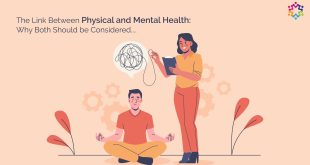Introduction to Hormonal Imbalances and Erectile Dysfunction
When it comes to matters of the heart — or rather, matters below the belt — understanding the intricate dance between hormonal imbalances and erectile dysfunction is crucial. Let’s dive into the tangled web of hormones, shall we?
Defining Hormonal Imbalances
Hormonal imbalances are like that one friend who always messes with your plans. They occur when there’s either too much or too little of a particular hormone in your system. It’s like a seesaw that’s stuck on one side, throwing your body’s delicate equilibrium out of whack.
Overview of Erectile Dysfunction
Ah, erectile dysfunction. The phrase that can strike fear into the hearts (and other parts) of many a man. This condition, often dubbed as ED, is when a man struggles to get or maintain an erection firm enough for satisfactory sexual performance. It’s like trying to inflate a balloon that just won’t cooperate. Frustrating, to say the least.
Understanding the Role of Testosterone in Erectile Function
Enter testosterone, the quintessential male hormone that packs a punch in more ways than one. Let’s unravel the mystery behind its influence on erectile function.
Testosterone and Male Health
Testosterone isn’t just about muscles and machismo; it plays a vital role in maintaining overall male health. From bone density to muscle mass, this hormone wears many hats in the male body.
Effects of Low Testosterone Levels on Erectile Function
When testosterone takes an unexpected dive, so can your erectile function. Low levels of this hormone can throw a wrench into your plans for a steamy night, leaving you feeling like a deflated balloon in more ways than one.
Impact of Thyroid Hormones on Erectile Dysfunction
Thyroid hormones might be small, but they sure do pack a punch when it comes to your sexual health. Let’s explore their influence on erectile dysfunction.
Thyroid Hormones and Health
The thyroid gland may be tiny, but its hormones have a big job to do. From regulating metabolism to influencing heart rate, these hormones are the unsung heroes of your body’s functions.
Thyroid Disorders and Erectile Dysfunction
When your thyroid decides to throw a tantrum and veers off course, it can spell trouble for your erectile function. Thyroid disorders can disrupt the delicate balance needed for a smooth-sailing night of passion.
The Link Between Cortisol Levels and Erectile Function
Ah, cortisol, the stress hormone that never seems to give you a break. Let’s uncover how its levels can impact your performance in the bedroom.
Cortisol’s Role in the Body
Cortisol is like that annoying alarm clock that goes off at the worst possible times, signaling your body’s stress response. It’s essential for survival, but too much can wreak havoc on your body and mind.
Cortisol Imbalance and Erectile Dysfunction
When cortisol goes rogue and decides to party all night long, it can throw your erectile function for a loop. High levels of this stress hormone can dampen your libido and put a damper on your bedroom escapades.### Hormonal Imbalances in Women and Erectile Dysfunction
Do hormonal imbalances affect women’s sexual health? Absolutely. Estrogen and progesterone play a crucial role in female health, including sexual function. When these hormones are out of whack, it can impact libido and arousal, contributing to issues like erectile dysfunction.
Estrogen and Progesterone in Female Health
Estrogen and progesterone aren’t just for baby-making and mood swings – they also influence sexual desire and satisfaction. Keeping these hormones balanced is key to maintaining a healthy sex life and reducing the risk of sexual dysfunction.
Menstrual Cycle and its Impact on Function
We all know periods can be a pain, but did you know they can also affect sexual function? Fluctuating hormone levels throughout the menstrual cycle can impact libido, arousal, and even vaginal dryness. Understanding these changes can help navigate potential challenges in the bedroom.
Treatment Strategies for Hormonal-Related Erectile Dysfunction
So, what can be done if hormonal imbalances are getting in the way of a healthy sex life? Treatments like hormone replacement therapy and making lifestyle changes can help restore hormonal balance and improve erectile function.
Hormone Replacement Therapy
Hormone replacement therapy isn’t just for menopausal women – it can also benefit individuals experiencing hormonal-related erectile dysfunction. By supplementing with hormones like estrogen or testosterone, it’s possible to address imbalances and improve sexual health.
Lifestyle Changes and Dietary Considerations
Sometimes, simple lifestyle tweaks can make a big difference. From regular exercise to a balanced diet rich in nutrients that support hormone production, there are plenty of natural ways to promote hormonal balance and enhance sexual function.
Future Directions in Research and Treatment Approaches
What does the future hold for treating hormonal-related erectile dysfunction? Exciting developments in emerging therapies and advancements in hormonal testing and monitoring offer hope for more effective and tailored approaches to address these issues.
Emerging Therapies for Hormonal-Related Erectile Dysfunction
Researchers are exploring innovative therapies that target hormonal imbalances more precisely, potentially offering personalized treatment options for individuals struggling with erectile dysfunction due to hormonal issues.
Advancements in Hormonal Testing and Monitoring
Gone are the days of guesswork when it comes to hormone levels. With advancements in testing and monitoring technologies, healthcare providers can now assess hormonal imbalances more accurately, leading to more targeted and effective treatment strategies.
Conclusion
In conclusion, understanding the intricate relationship between hormonal imbalances and erectile dysfunction is crucial for effective diagnosis and treatment. By exploring the roles of testosterone, thyroid hormones, cortisol, and other key hormones, healthcare professionals can tailor interventions to address specific hormonal deficiencies. Moving forward, continued research and advancements in treatment approaches hold promise for improving the management of hormonal-related erectile dysfunction, ultimately enhancing the quality of life for individuals affected by this condition.






